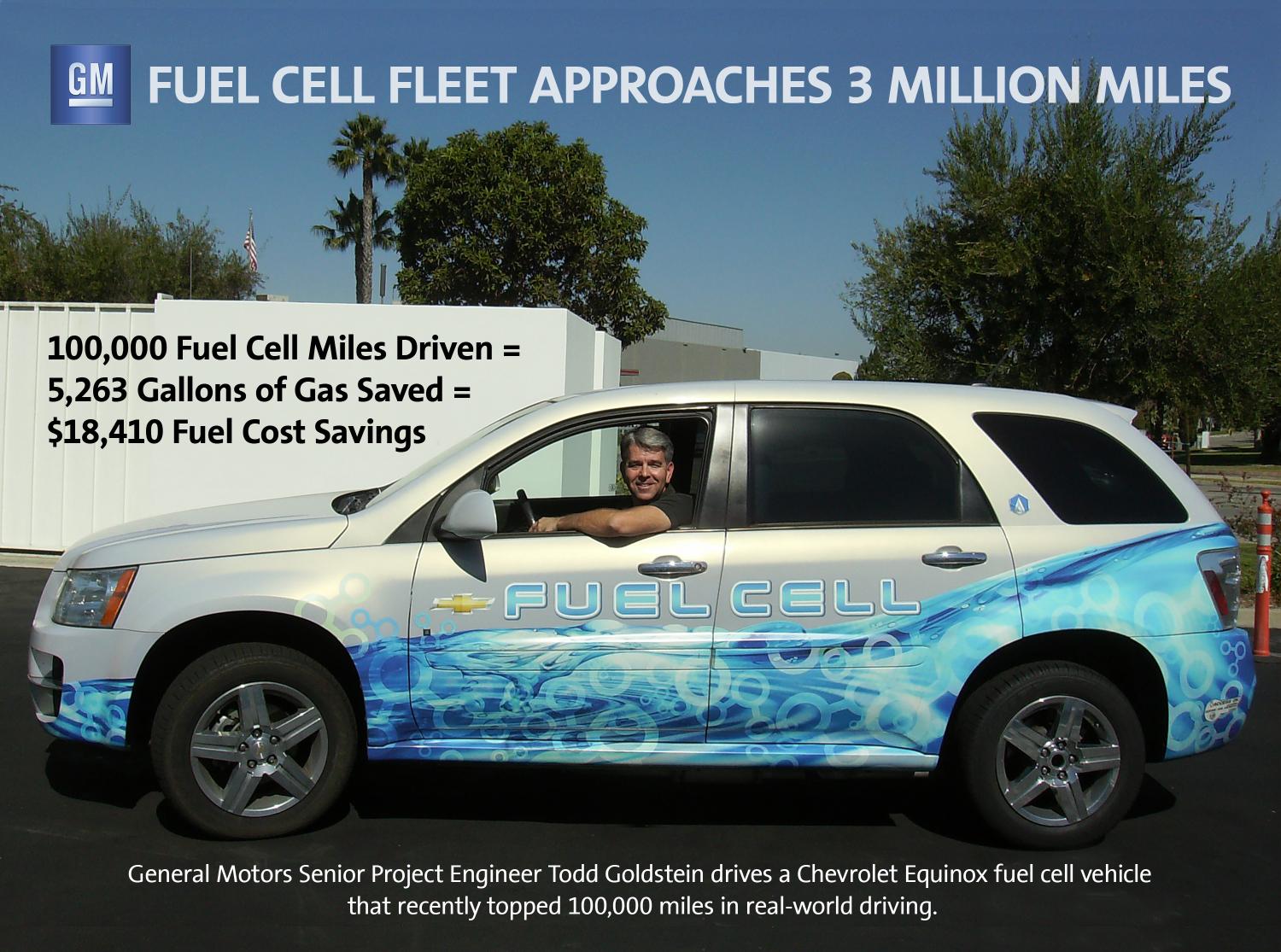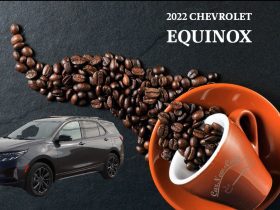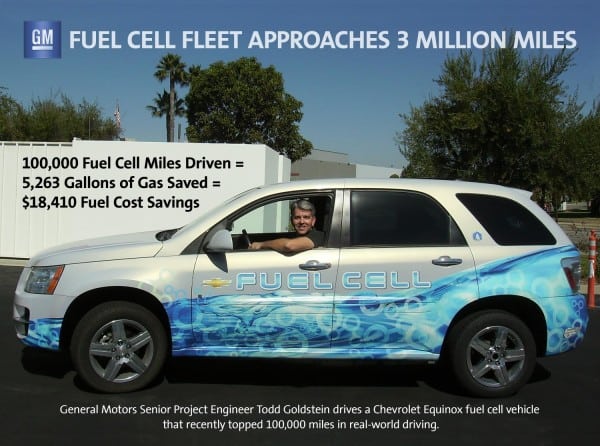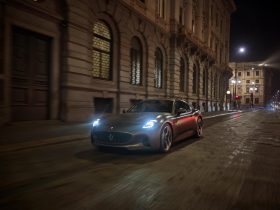Press Release
One of General Motors’ fuel cell research vehicles recently passed a milestone for a hydrogen-powered vehicle, topping 100,000 miles of real-world driving. By using renewable hydrogen, this vehicle has saved 5,260 gallons of gasoline. At $3.50 per gallon, that’s more than $18,000 in fuel cost savings.
The specially equipped 2007 Chevrolet Equinox was part of GM’s 119-vehicle Project Driveway program, launched in 2007. To date, GM’s fuel cell test fleet has accumulated nearly 3 million miles, more than any other automaker. By GM’s calculations, the fleet has saved 157,894 gallons of gasoline – more than $552,631 in avoided fuel cost.
During Project Driveway, the 100,000-mile Fuel Cell Equinox operated as a fleet vehicle at Walt Disney Company’s studio in Burbank. After Project Driveway, it became an engineering development vehicle driven by as many as 10 GM engineers.
Todd Goldstein from GM’s Advanced Technology Demonstration Program was behind the wheel of the fuel cell vehicle when its odometer reached 100,000 miles. The senior project engineer routinely drives the vehicle between the Los Angeles suburb of Torrance and outlying communities of Oxnard, Santa Clarita, Victorville, Palm Springs and San Diego.
“The Fuel Cell Equinox is an attention-getter everywhere I go,” Goldstein said. “The people who ask me about it are very enthusiastic about the technology.”
GM is an acknowledged leader in fuel cell technology. According to Clean Energy Patent Growth Index, GM ranked No. 1 in total fuel cell patents filed between 2002 and 2012.
The company is currently building a new Fuel Cell Development Laboratory in Pontiac, Mich., where the majority of the company’s future fuel cell development work will take place.
GM has announced two fuel cell-related collaborations this year. In July, GM and Honda announced a long-term, definitive master agreement to co-develop a next-generation fuel cell system and hydrogen storage technologies, aiming for the 2020 time frame. In September, GM and the U.S. Army Tank Automotive Research, Development & Engineering Center said they are expanding their co-development of hydrogen fuel cell technology.
“We believe hydrogen fuel cell technology holds tremendous potential to one day help reduce our dependence on petroleum,” said Charlie Freese, executive director of GM’s global fuel cell engineering activities. “The resilience of our test fleet and new research partnerships are helping us reach this goal.”








